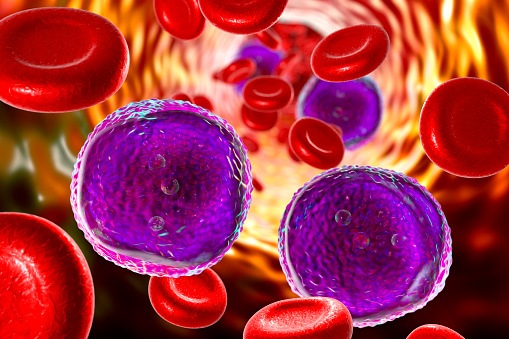
In a study presented at the 2022 American Society of Clinical Oncology Annual Meeting, researchers assessed two unique mutations, mutated DEAD-box helicase 41 (mDDX41) and mutated (m)GATA2, for their impact on myeloid neoplasms (MN). According to first author, Ahmad Nanaa, patients with mDDX41 had better overall survival (OS) and leukemia-free survival (LFS).
The majority of mDDX41 subjects as intermediate risk, while mGATA2 patients were predominantly classified as adverse-risk disease, according to the researchers. They further noted that mDDX41 subjects had fewer cytogenetic aberrations, no myelodysplastic syndrome (MDS)/myeloproliferative neoplasm (MPN) overlap, and lower white blood cell count.
The study retrospectively examined 36 and 55 patients with mDDX41 and mGATA2 alterations, respectively who had undergone next-generation sequencing at the authors’ clinic. The most common diagnosis was MDS at 22 (61%) in the mDDX41 group and 17 (31%) in the mGATA2 group.
Researchers reported that mDDX41 subjects had higher hemoglobin, platelets, and mean corpuscular volume (MCV), as well as significantly lower white blood cell count, when compared to mGATA2 subjects (p <0.0001). Notably, after a median follow-up of 30 months during MDS/acute myeloid leukemia (AML), seven (21%) mDDX41 cases versus 23 (77%) mGATA2 cases had died, with median OS of 11.2 months and 5.2 months, respectively (p <0.0001). Finally, the authors also reported that LFS was significantly longer in patients with mDDX41 MDS compared to in mGATA2 MDS (24.4 vs. 6 months; p <0.0001).
The researchers acknowledged that their study was limited by its small sample size and retrospective design, as well as by the absence of germline testing for all enrolled patients; however, they concluded, the study “supports the favorable prognosis and indolent course of mDDX41 patients recently described.”







 © 2025 Mashup Media, LLC, a Formedics Property. All Rights Reserved.
© 2025 Mashup Media, LLC, a Formedics Property. All Rights Reserved.